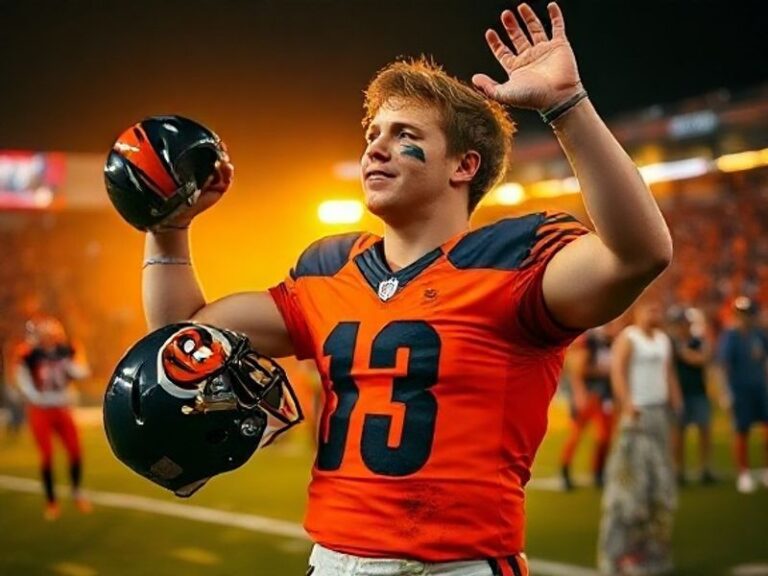How a Peckham Heartbreak Became the World’s Unexpected Lullaby: The Global Rise of Lola Young
The Curious Case of Lola Young and the Global Sensation Nobody Saw Coming
By Bas van der Meer, Senior Correspondent, Dave’s Locker
If you had asked the average Berlin techno fiend, Lagos data-entrepreneur, or Singaporean bubble-tea sommelier last year to name the next British export likely to colonise their playlists, “a 22-year-old Peckham kid with a jazz-scorched voice and a penchant for diary-level oversharing” probably wouldn’t have cracked the top 100. And yet, here we are: Lola Young’s raw-nerve ballads now echo from Seoul karaoke booths to São Paulo UberPool aux cords, proving once again that the algorithmic gods have a sense of humour darker than the espresso in Naples.
It began, as these things do, with a leaked demo—an iPhone voice memo so lo-fi it could’ve been recorded beside a South London busker’s takeaway curry. Within 72 hours, the clip mutated across TikTok, Instagram Reels, and whatever the Chinese call the thing that isn’t quite TikTok but still harvests your dopamine. By the time the major labels’ A&R drones had finished their morning matcha, Lola had already been memed in Cyrillic, subtitled in Arabic, and turned into a 15-second soundtrack for a Brazilian skateboarder’s failed kickflip. Globalisation’s new motto: “Move fast and break the human heart.”
The numbers, as accountants like to say before they emigrate to Dubai, are indecent. Spotify’s “Top 50 Global” chart has become a chessboard on which Lola’s single “Messy” currently dukes it out with Bad Bunny and whatever K-Pop hydra SM Entertainment has unleashed this quarter. More telling: in Jakarta, bootleg T-shirts bearing her face outsold the official merch pop-up in Shoreditch. Intellectual-property attorneys are Googling Bahasa curse words as we speak.
Why does it matter to anyone beyond the 30-square-mile creative swamp called London? Because Young’s ascent is a tidy parable for the post-Brexit, post-truth, post-everything era. Britain, having voluntarily kneecapped its easiest trading relationship, now relies on vibes, vibes, vibes. Lola’s music—equal parts Amy Winehouse autopsy report and early Adele heartbreak—arrives gift-wrapped in authentic anguish, the one commodity Britain still produces without tariffs. While Downing Street negotiates imaginary trade deals, a young woman with a cracked iPhone and a borrowed guitar just achieved soft-power penetration deeper than any ambassador with a Union-Jack lapel pin.
Observers in the Global South note the irony. Countries that spent centuries being told their accents were “too regional” now watch London A&R scouts scouring Peckham for exactly the same patois they once mocked. Meanwhile, African TikTok creators, who taught the world how to make three chords look like a stadium show, remain conspicuously absent from Western festival posters. The empire strikes back—only this time it’s wearing thrifted Carhartt and crying in the Uber home.
Financially, the ripple effect is textbook late-stage capitalism. A single sync placement in a Korean skincare commercial reportedly paid off Lola’s student debt faster than Rishi Sunak can U-turn on climate pledges. Each stream, roughly 0.0037 USD, wouldn’t buy a grain of rice in Mumbai, but multiplied by 200 million it buys a producer a down-payment on a Hackney flat—thus perpetuating the very cycle of metropolitan absurdity that birthed the songs in the first place. Karl Marx, take notes; this is what dialectics looks like with a lo-fi beat.
And then there’s the geopolitical subplot: Russian dissidents have adopted her track “Bad Tattoo” as an anthem for botched protests, captioning clips of police truncheons with the chorus “I keep picking at the scar.” Nothing says universal human experience like bruises synched to a breakup song. The Kremlin, ever allergic to joy, is allegedly drafting legislation to classify falsetto as extremist. Somewhere in a basement, Navalny’s team is choreographing a flash mob.
So what does Lola Young teach us, other than that melancholy sells better than molly at a warehouse rave? Simply this: in an age when borders harden and democracies wobble, one trembling vocal run can still vault the fences we erect. The world may be sliding into a flaming skip, but humans will always pay good money to watch another human bleed prettily into a microphone. Call it catharsis, call it commerce—just don’t call it surprising. We’ve been monetising heartbreak ever since the first bard got paid in goat’s milk and regret. The only difference now is the goat’s on crypto and the regret streams in 4K.
As the planet tilts toward another summer of record heat and record despair, Lola Young’s voice—cracked, defiant, undeniably alive—offers the kind of temporary shelter no climate summit ever will. Plug in your headphones; the apocalypse has a soundtrack, and it’s surprisingly catchy.







